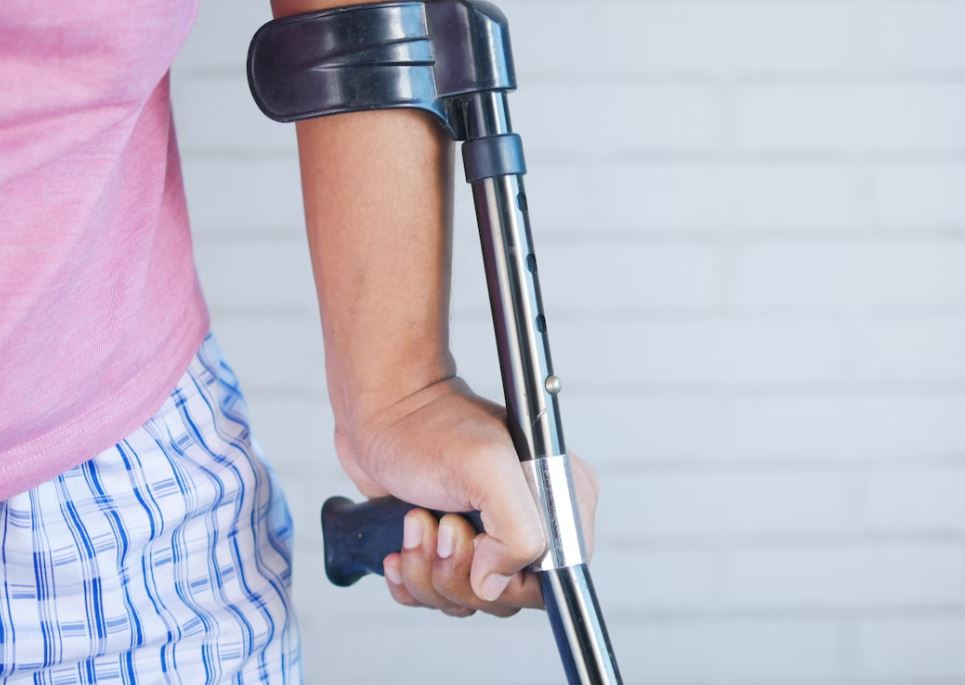Injured At Work? Know Your Rights with Workers’ Compensation – Guest Post

Have you ever wondered what you would do if you were hurt on the job? It’s not exactly a pleasant thought, but let’s picture a scenario: You’re busy with your usual work tasks at your workplace in Virginia. Out of nowhere, an injury at work turns your day upside down.
When such incidents occur, it’s crucial to know what steps to take next. This is where understanding your rights under workers’ compensation becomes invaluable.
Now, you might be thinking: that sounds complicated! That’s why we’re here to break it down for you. In this blog, we’ll walk you through everything you need to know.
Let’s get started!
How Does Workers’ Compensation Work?
Navigating the world of workers’ compensation can seem tricky, but it’s actually pretty straightforward once you get the hang of it. Here’s a breakdown of how it works:
Reporting Your Injury or Illness
First things first, if you get hurt at work, you need to tell your boss or supervisor right away. It’s important to do this quickly, usually within a few days of the injury. When you report it, be clear about what happened, when, and where. This step is super important because it starts the whole process.
Employer’s Responsibilities
After you report your injury, your employer has some responsibilities, too. They need to fill out some paperwork about your injury and send it to the insurance company. Also, they should make sure you get medical help if you need it. It’s their job to provide a safe workplace, so they take this stuff seriously.
Role of Insurance
This insurance is like a safety net for both you and your employer. When you get hurt at work, this insurance is what covers your medical bills and some of your lost wages. It’s there to help you recover without having to worry about the costs.
So, that’s workers’ compensation in a nutshell! It’s all about making sure you get the help you need if you ever get hurt at work.
Filing a Claim
Of course, filing a claim can be a tricky and confusing process, especially in Virginia, where the rules are specific and detailed. But you don’t have to do it alone. This is where a va workers compensation lawyer can be a huge help. They know all the ins and outs of these laws.
So, what does this mean for you? Firstly, it means less stress. The lawyer will fill out all the forms for you, which can be a lot, and make sure they are filled out right. They also talk to the necessary people, like the insurance company. This is important because talking to these people can sometimes be hard and a bit intimidating.
Another big help is you can focus on getting better. Instead of worrying about paperwork and legal stuff, you can put your energy into your recovery. That’s what really matters.
Benefits Provided by Workers’ Compensation
Let’s break down the key benefits you should know about:
Medical Benefits
Firstly, if you get hurt at work, the compensation helps cover your medical bills. This means that the costs for doctor visits, hospital stays, medications, and even surgeries related to your work injury are typically taken care of.
Temporary Disability Benefits
Sometimes, an injury can keep you away from work for a while, but it’s not permanent. During this time, temporary disability benefits step in to help. They’re like a partial paycheck, ensuring you still have some income while you’re recovering and can’t work. This way, you can focus on getting better without stressing too much about your finances.
Permanent Disability Benefits
In some cases, an injury might leave you with long-lasting effects that change your ability to work as you did before. That’s where permanent disability benefits come in. They provide financial support if your injury permanently impacts your ability to do your job. Think of it as continued assistance to help you manage life and work changes due to your injury.
Vocational Rehabilitation Options
What if your injury means you can’t go back to your old job? Workers’ compensation can help here, too, through vocational rehabilitation. This benefit helps you learn new skills or find a different kind of job that suits your current abilities. It’s like getting a helping hand to guide you into a new work path that fits your situation.
Death Benefits
In the very sad event that someone dies because of a work-related injury, workers’ compensation provides death benefits. These are funds given to the worker’s family or dependents to help them financially. It’s a way to support families dealing with a significant loss, ensuring they have some financial assistance during a tough time.
How Long Do The Benefits Last?
When you’re injured at work and start getting workers’ compensation benefits, one of the first questions you might have is, how long will these benefits last? Generally, the benefits continue as long as you need them, based on your medical condition.
Now the question is, when do benefits end?
There are a few situations where workers’ compensation benefits might stop. Here are the common ones:
- Medical Improvement: If your doctor says you’ve healed as much as you’re going to, your benefits might end.
- Returning to Work: If you’re able to go back to your job, or if you find a new job that you can do with your injury, your benefits will usually stop.
- Time Limits: Some types of benefits have time limits. For example, temporary disability benefits don’t go on forever; they have a set end date.
However, sometimes, there are special cases where your benefits might last longer or be extended. These include severe injuries, appeals, and changes in condition or vocational rehabilitation.
Conclusion
Finally, it’s worth noting that injuries at work are never a pleasant experience, but with the right knowledge and support, you can make your journey to recovery a less daunting one. Stay informed and prepared, and, most importantly, prioritize your health and well-being. And always remember, if you find yourself unsure or overwhelmed, seeking guidance from an attorney can be a wise step.




